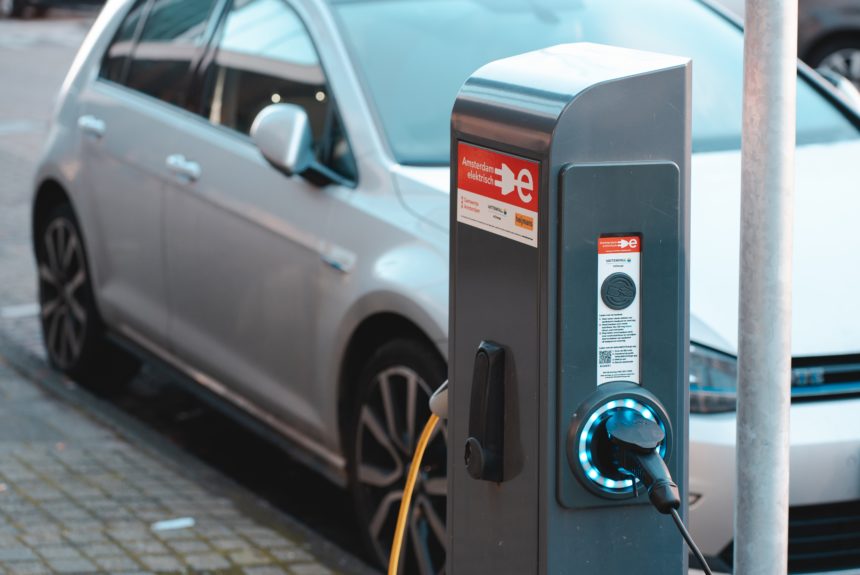A cohort of some of the world’s leading automakers is teaming up to build a vast network of EV charging stations across North America. The carmakers––General Motors (GM), BMW, Honda, Hyundai, Kia, Mercedes-Benz, and Stellantis––will invest an initial $1 billion to erect thousands of vehicle charging ports along major U.S. and Canadian highways and in cities, according to an announcement released by GM on July 26.
>>>READ: The Biggest Obstacle to EV Sales is the Government
The joint venture aims to install “at least” 30,000 high-speed electric chargers by 2030, with the first stations scheduled to open next summer. The chargers will be public and accessible to all EV customers, including Tesla owners (the cohort’s general competition). All stations will have connectors for both Tesla’s North American Charging Standard plugs and the Combined Charging System plugs used by the companies. Each station will have approximately 10 to 20 charging points.
“The joint venture aims to become the leading network of reliable high-powered charging stations in North America,” the group said. “The network will provide a seamless, vehicle integrated, best-in-class charging experience.”
The charging network will be powered by renewable energy “as much as possible” and the stations will be situated in convenient locations complete with canopies and amenities such as restrooms, restaurants, and retail stores. The move is part of a general effort by the alliance to drive EV growth. While the global EV market remains strong, many would-be customers are turned off by the lack of infrastructure related to EV charging (so-called “range anxiety”) and the long charging times. The new network would improve both.
“The car companies have realized that if they’re going to get people to buy EVs, they really have to build up a network of chargers very aggressively, especially on the highways,” Bloomberg News Detroit Bureau Chief David Welch told CBS News. “The big holdup for everyone buying an EV is they’re afraid they’ll be out on a road trip and they’ll run out of juice and be stranded somewhere.”
The venture is also a way for the cohort to gain market share from Tesla, whose Supercharger network is considered world-leading. The car brand maintains more than 17,000 individual superchargers nationwide, accounting for more than half of all U.S. high-speed chargers. Not surprisingly, Tesla also dominates U.S. electric vehicle sales, selling 64.5% of all EVs in the country. Ford holds the second-largest market share at just 7.5%.
The collective will draw on private and public funding at the state and federal level to build out the network. Specifically, the car manufacturers will appeal to the government for National Electric Vehicle Infrastructure (NEVI) funding.
>>>READ: Consumers Should Decide What Car is Best for Them
The current ratio of electric vehicles to charging units is a paltry 72:1. As of July 2023, there are only 32,000 direct current (DC) fast chargers publicly available in the U.S. In order to meet future demand for fast and reliable charging as EV consumer adoption rates increase, the Department of Energy estimates that 182,000 DC charging ports will be needed to support the 30 to 42 million plug-in vehicles projected on the road by decade’s end. According to the Department of Transportation, DC fast chargers can charge a battery electric vehicle to 80% in just 20 minutes to one hour.
Expanding EV charging infrastructure in the U.S. will increase demand for the technology which will incentivize manufacturers to build more EVs and ultimately lower costs for consumers. Reducing barriers for EVs through private sector initiatives like these, not stringent regulations, will reduce emissions from the transportation sector and benefit American families.
Nathalie Voit is a freelance content creator and a graduate of the University of Florida. She is an alumni of The Heritage Foundation’s Young Leaders Program.
The views and opinions expressed are those of the author’s and do not necessarily reflect the official policy or position of C3.
